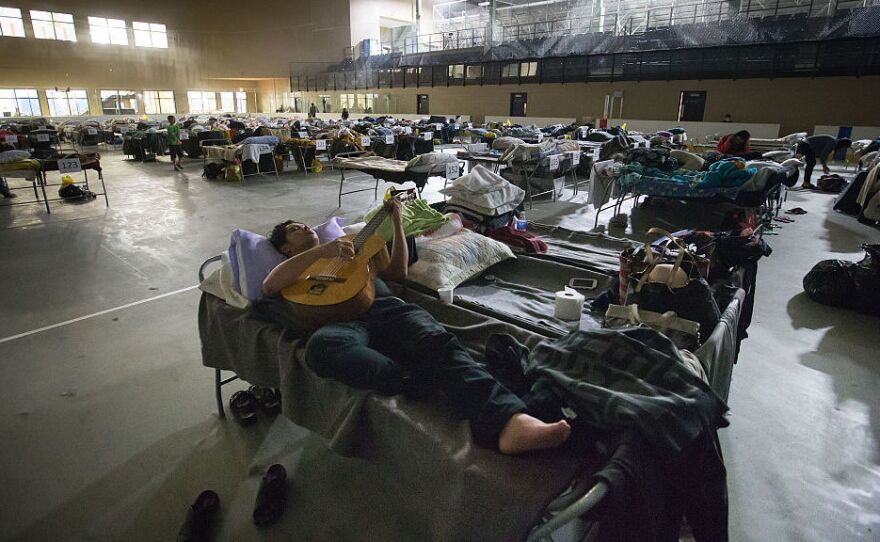
A massive wildfire in Alberta, Canada, now extends more than 600 square miles, and officials are concerned that it could double in size on Saturday because of windy, dry weather conditions.
The Alberta government says some 500 firefighters are fighting the fire in and around Fort McMurray, in addition to 15 helicopters and 14 air tankers.
Reporter Craig McColloch tells NPR's Newscast unit that at least 88,000 residents have been evacuated since the blaze erupted nearly a week ago, and it's impacting the region's oil sands industry. The region has "the third-largest reserves of oil in the world behind Saudi Arabia and Venezuela," according to the Associated Press.
Here's more from Craig:
"Another major energy company is shutting down operations near Fort McMurray. Syncrude joins Suncor Energy, BP and Phillips 66 who have alerted customers they will not be able to meet their obligations to provide Canadian crude oil due to the wildfire."Ralph Goodale, Canada's minister for Emergency Preparedness, says more firefighters are being brought in to relieve those on the front lines: 'They've been on the line doing this now for almost a week. And they need some rest. They need some respite.' "Meanwhile, the convoy of evacuees from oil field work camps north of Fort McMurray continues. ... Many are also being airlifted out."
Craig adds that those southbound evacuee convoys are being escorted in groups of 50 by the Royal Canadian Mounted Police.
The Associated Press describes what the fleeing workers are likely seeing:
"The images were largely ones of devastation — scorched trucks, charred homes and telephone poles, burned out from the bottom up, hanging in the wires like little wooden crosses."
The Two-Way has highlighted some of those scenes in a series of photos from the raging wildfires.
Chad Morrison, Alberta's manager of wildfire prevention, tells the AP that there was "high potential that the fire could double in size" by the end of the day on Saturday.
The CBC reports that local officials battling the fire now refer to it as "the beast." The news service reports that during the past five days, "the fire has destroyed more than 1,600 homes and buildings, forced 80,000 to evacuate the city, and resisted all efforts to to try to wrestle it under control."
The CBC also says the city had already been hit hard by the drop in oil prices, resulting in "thousands of layoffs." It adds: "People who had been struggling to find work are now also looking for a place to stay."
"What do we restart from? I think it is going to force a lot to leave. Our population is going to shrink," oil sands worker Cory Samman says, according to CBC.
Meanwhile, the government says evacuated families will receive $1,250 per adult and $500 per dependent in emergency financial assistance.
Copyright 2016 NPR. To see more, visit http://www.npr.org/.






